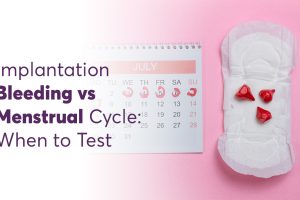Weight and Reproductive Outcomes

It is estimated that a vast percentage of men and women of the reproductive age are obese or overweight.
Most people are aware that being obese increases the risk of health problems such as diabetes and heart diseases. However, many are still unaware that this condition also reduces their chances of fertility and the chance of having a healthy baby.
What Causes Some People to be Obese?
Many factors contribute to obesity, including eating habits, family history, and levels of physical activity. Factors in the environment such as the ready access to fast food, processed food, and sugary/aerated drinks, the reliance on easy modes of transport such as a car or bike even for short distances, also influence obesity rates.
People who are obese often feel bad about this, and in a way, it is due to the notion attached to obesity. Feeling judged, discredited, discriminated against or pressured by others can result in a behavioural change that further leads to weight gain.
How are Obesity and Fertility related?
Obesity can cause hormonal changes that tend to interfere with ovulation and reduce fertility in a woman. As a result, obese women
- take longer than usual, to conceive than women in the healthy weight range and,
- are far more likely to experience infertility.
In men, obesity lowers fertility. This is probably due to a combination of factors including hormone problems, difficulty during erection and other health conditions associated with obesity.
Among infertile couples who use the trending assisted reproductive technology (ART) to conceive:
- female and male obesity reduce their chances of achieving a successful pregnancy and
- the risk of miscarriage is more, and the live birth rate is considerably lower for overweight and obese than for a woman who falls in the normal-weight range.
How are Obesity and Pregnancy-related?
Being overweight or obese has a negative impact on a woman’s health during pregnancy. Compared with pregnant women who fall in the healthy weight range, overweight and obese women are more likely to:
- experience miscarriage
- have a premature birth
- develop high blood pressure and diabetes
- have induced labour and
- be delivered by caesarean section.
How are Obesity and the New Baby related?
Maternal obesity increases the risks of severe outcomes for the baby. Babies who are born to overweight or obese women are more likely than babies with mothers in a healthy weight range to
- have a birth defect
- be stillborn
- weigh more than 4.5 kgs at birth known as macrosomia and
- be at high risk of obesity and other related health problems in their childhood and adulthood.
What’s The Good News?
Although the facts about obesity and reproductive outcomes can seem to be overwhelming, there is definitely some good news.
In obese women, even a slight weight loss improves fertility and health during pregnancy. Additionally, some dietary and lifestyle changes that limit pregnancy weight gain can improve results for both mother and baby. Recommended lifestyle modifications for the obese individual come up to a weight loss of 7% of body weight and at least two and a half hours of weekly moderate activity such as walking or other exercises.
It is estimated that consumption of 500-1000 kcal per day less from usual food should lead to a weight loss of 0.5-1 kg per week. A low-calorie diet of 1000-1200 kcal per day can result in a 10% decrease in total body weight over six months.
A recent study showed that men and women are twice as likely to make positive health behaviour change if their partner does too. For couples trying to get pregnant, working together to increase physical activity and lose weight can improve their chances of having a healthy baby.










